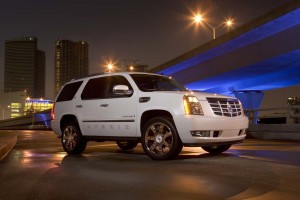Long written off by much of the American public, Detroit’s Big Three automakers have been gaining sales and market share in recent months, in part due to the accolades the makers are receiving for their newest products. So, the results of the 2011 Vehicle Satisfaction Awards will likely contribute to that momentum.
Domestic brands dominated the annual study by California-based research firm AutoPacific, Inc. which looks to find which vehicles do the best job of pleasing their owners.
The study found that two brands often described as “struggling” actually led the list: Lincoln being named the Top Premium Brand, Chrysler ranked Top Popular Brand by the motorists who participated in the Vehicle Satisfaction Awards, or VSA.
Ford Motor Co. captured seven awards overall, the most of any maker in individual product segments. The Cadillac Escalade, meanwhile, was the overall highest-ranked light truck model in the 2011 study, though an import, the Mercedes-Benz S-Class, did top the list when it came to most satisfying passenger car.
While there is usually a link between quality, reliability and customer satisfaction, AutoPacific analysts stress that other factors also come into play, such as value, design, performance and technology. So, the imports, traditional leaders in quality-related surveys often slip in studies that go beyond “things-gone-wrong.”
Toyota, which has had a variety of problems – including quality issues – over the past several years, still managed to take four category wins, including best sporty car, with the Scion tC, and most satisfying crossover, with the Lexus RX. It’s big Avalon tied with the Ford Taurus in the large car category.
General Motors took three segment awards, the same number as fast-growing Hyundai, which collects trophies in the premium midsize and compact car segments, with the Sonata and Elantra, respectively.
Detroit makers have been gaining ground in virtually all the various metrics used to rank the hotely competitive market, including out-of-the-box quality and longer-term reliability. But satisfaction studies are particularly revealing, industry officials note, because a customer pleased with a vehicle is more likely to buy another one – even if it does experience some service problems.
Meanwhile, the awards themselves are having an impact.
“Proof of satisfied customers is as good as gold,” says George Peterson, president of AutoPacific. “We’ve found that more than one-third of new car buyers are positively influenced by objective awards based on owner ratings when deciding on a new car or truck.”
Among premium brands, the Top Five, in order, were Lincoln, Cadillac, Lexus, Mercedes-Benz and Jaguar.
Chrysler was the top-ranked mainstream marque, followed by Chrysler, Buick, Hyundai, GMC and Dodge.
So, notably, only one Japanese and one Korean brand landed in either list, along with just two European nameplates.
Perhaps an equally big surprise was the fact that Hyundai’s value-oriented Genesis was chosen tops in the Aspirational Luxury Car category.
Another unexpected finding was that Lincoln’s MKZ Hybrid took honors as most satisfying hybrid car, the popular Toyota Prius only making it into the number eight position. It’s unclear whether the recall of the Prius for brake problems, last year – or Toyota’s overall issues – might have impacted the results. Nonetheless, Prius remains the best-selling hybrid in the market.


Tipping point, perhaps?